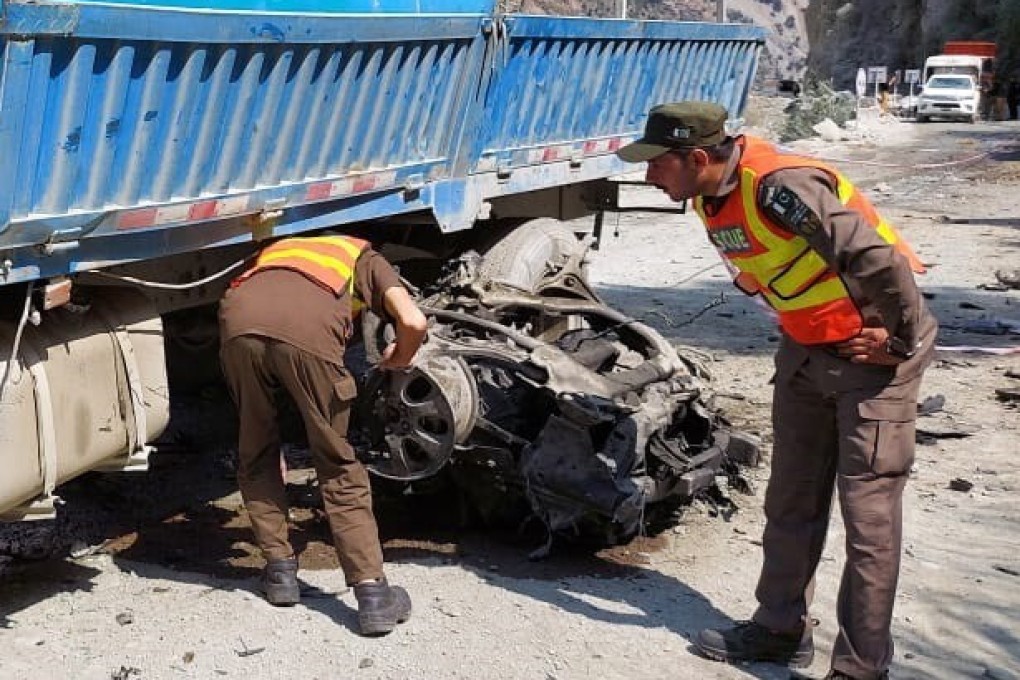China urges Pakistan to ‘severely punish’ bus attackers after blast kills 13, including nine Chinese nationals
- While Pakistani officials said the nature of the blast was under investigation, the Chinese embassy in Islamabad said its nationals had come under ‘attack’
- The bus was on its way to the Dasu hydropower project, part of the China-Pakistan Economic Corridor under construction in Khyber Pakhtunkhwa province

Condemning the attack, Foreign Ministry spokesman Zhao Lijian urged Pakistan to “severely punish” the perpetrators “and earnestly protect the safety of Chinese nationals, organisations and projects” in the country.
The bus was carrying Chinese engineers, surveyors and mechanical staff to a dam construction site in Dasu, Khyber Pakhtunkhwa province where a hydroelectric project is under construction.
“The blast sparked a fire in the engine plunging the vehicle into a ravine," a local government official said, adding that as many as 28 other Chinese nationals had been injured. Arif Javed, a deputy district commissioner, said at least 36 people were hurt.
China described it as a “bombing” and an “attack”, although Pakistan’s foreign ministry blamed a mechanical failure for a “leakage of gas that caused a blast”.
